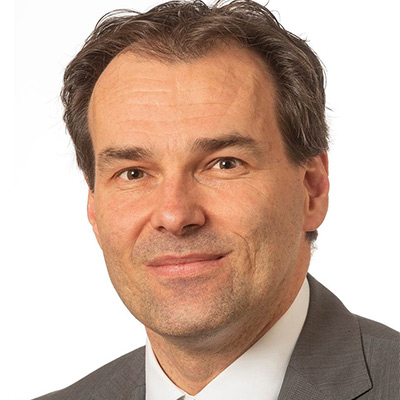Members' interviews
Interview with Andor Savelkouls, Senior Director, European Renewables Advisory at Altenex Energy

15 January 2021
This month, we sat down with Andor Savelkouls, Senior Director, European Renewables Advisory at Altenex Energy to discuss their role in enabling corporate renewable procurement and the growing importance of PPAs.

Can you tell our readers a little about your organisation? (general history in Europe, countries in which you are active, specific projects you are involved in, industry players you have worked with, etc.)
Altenex Energy, a wholly owned subsidiary of Edison Energy, is an independent advisor for corporate and industrial energy users, delivering comprehensive, data-driven and integrated energy solutions in Europe.
My role is to establish and grow our renewables practice in Europe, both from a business and an organisational point of view. While Altenex Energy is based in the Netherlands, we have offices and partnerships spanning the globe. The Altenex Energy team can support clients located across the European continent.
We are driven by helping companies navigate the complexities of today’s energy landscape and helping them solve the biggest challenges in energy today – cost, carbon, and complex choices. We achieve this mission by delivering solutions like Power Purchase Agreements (PPAs) that allow clients to benefit from the opportunities in the energy transition and reach their strategic, financial and sustainability goals.
What are the most exciting developments you have seen in the wind industry?
As some companies are getting closer to fully sourcing their electricity needs from renewables, they begin to focus on (and take ownership of) their supply chain emissions (Scope 3 emissions). Mitigation of these emissions is bringing companies together, upstream and downstream in the supply chains, to collaborate on things like multi-buyer PPAs and (non-trivial) life-cycle assessment and carbon footprint reporting. Utility-scale wind projects developed across Europe provide an opportunity for such Scope 3 reductions through PPA aggregation, allowing buyers to meet their sustainability goals while achieving economies of scale. We are getting many requests from corporates to initiate and facilitate these kinds of engagements, from the pharmaceutical sector to the food and beverage sector.
Another development that we are excited about is the emergence of subsidy-free offshore wind farms enabled by corporate PPAs. The typically higher capacity factors of these projects align well with the continuous operation of many industrial players, reducing their profile risk from the mismatch between renewable electricity production and consumption. Due to this natural fit, we expect to see strong growth of these kinds of deals in the years ahead.
What changes would you like to see in the wind industry?
An increased understanding and agreement on the mutual exposures to credit risk for buyers, sellers and investors will benefit the corporate PPA market as a whole. For example, it makes a difference whether the agreed pricing structure is based on a fixed price (high exposure for seller) or floating price (low exposure for seller) for the term of the agreement. Currently, if the typical parent company guarantees (PCGs) are not sufficient, then the buyer must post letters of credit from financial institutions, which at best hurt project economics, though often are entirely cost prohibitive. Together with WindEurope and other organisations, we advocate for public sector support at EU or Member State level on guarantees, similar to the successful scheme from the Norwegian Export Credit Guarantee Agency (GIEK) for industrial companies in Norway.
Going forward, what role do you see your organisation playing in the future development of wind energy
Altenex Energy will continue to grow and advise corporations on renewable procurement in Europe. In the past few years, we have seen an increased demand for corporate PPAs driven by increasingly ambitious corporate sustainability goals. In my view, having a sustainability strategy and associated targets for carbon emissions reduction in alignment with the Paris Agreement, will soon become a social license to operate for any company across the globe. Moreover, the gradual phase-out of subsidies, limiting government support to facilitation around permitting and infrastructure, means that further build-out of renewables will depend more and more on corporates providing revenue stability by developing the PPA market like they have done in the US in the past and allowing it to mature.
We can support companies in implementing these complex agreements by educating internal stakeholders (notably Procurement, Sustainability, Operations, Finance and Treasury departments) and managing the approval process with all decision makers. In particular, virtual PPAs or vPPAs, which dominate the market in the US require additional attention as financial instruments, but have several advantages such as simplicity, cost benefits, and flexibility. We look forward to supporting this transformation as new markets open up for corporate off-takers.
How has WindEurope membership benefited your organisation?
It has been instrumental in quickly building our network across the entire wind energy sector, from developers to off-takers and other service providers, as well as in accessing relevant sources of intelligence. Going forward, we are looking to return the favour by getting actively involved in the various workstreams on specific topics that it runs. The role that WindEurope has in organising RE-Source, the leading global conference for corporate energy buyers, cannot go unmentioned and we were proud to sponsor the event last December. Of course, we all hope to have offline instead of online interactions with each other again during the conference breaks and after-hours, as that is where the real magic happens.
If we look ten years ahead, what do you hope to have achieved?
Looking back, my children will hopefully tell me that by working in this space I have not just been doing the right thing, but also the smart thing. It is “obvious” that electricity generated from solar and wind is cheaper than fossil fuels and nuclear. It is “obvious” that renewables coupled with batteries can deliver power around the clock. And it is “obvious” that offshore wind coupled with electrolysers can economically produce green hydrogen for those processes that cannot be easily electrified.

